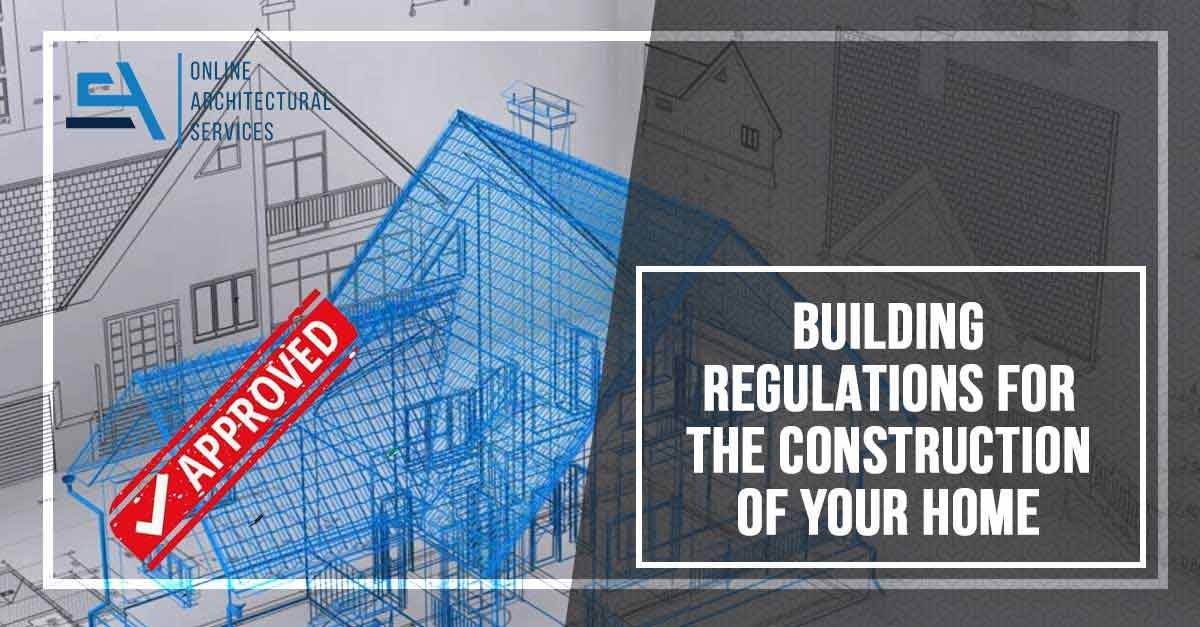So, you have done with the Planning Application phase for the development of your property? If you already have the permission from your local council and now you are looking forward to the next steps. After you have planning permission, you need building regulation approval, either from a local authority building control department or an Approved Inspector.
What Is Building Regulations?
Whether you want a new build, an extension, or some structural alteration to your property, you will need building regulation approval for that. Building Regulations are a set of standards for design, construction, and alteration, that has developed by the UK government and approved by the parliament. These regulations include consideration of materials and workmanship requirements, structural matters, fire safety, sound insulation, energy conservation, and access to and use of buildings.
Why Is It Different From Planning Permission?
You must be thinking, you already have Planning Permission from your local authority, why do you need Building Regulation? Well, planning usually deals with the outer part of the building, for instance, the use of land & buildings, the appearance of buildings, landscaping considerations, highway access, and the impact the development will have on the general environment. Building regulation, but, ensures the safety and health of the people living in the building. It also ensures fuel and power and the facilities that people will have inside the building.
While planning permission may not need some permitted developments, building regulation needs for most developments that can take place in a property.
When Do You Need Building Regulation Approval?
While carrying out building work, it is necessary that you know that everything complies with building regulations. Most of the building works need building regulation approval. The following projects will need building regulation approvals-
- New build
- The erection or extension of a building
- Installation of something under regulation
- Any alteration project that may affect the building
- Installation of a cavity wall insulation
- Underpinning the foundation
- Loft conversion
- Garage conversion
- Works affecting energy status
- Adding services or fittings in a building
In general, anything that can cause structural changes in the building will need building regulation approval.
Are There Any Exemptions To Building Regulation?
Certain types of works do not need Building Regulation Approvals.
- Building with no sleeping accommodation such as garages, sheds, and greenhouse which are no more than 30m². If the building is less than 1m from the boundary it has to built of non-combustible materials.
- A porch or conservatory built at ground level, in a location that does not affect means of escape from the upper window and with safety glazing in critical locations. Also if it is separate from the dwelling house, and the heating system of the existing house does not extend to the porch.
- If the conservatories have 75% of the roof and at least 50% of the walls glazed, you do not need building regulation approval.
- To install replacement drainage where there is no new drainage or plumbing systems works involved, minor repairs, and garden walls.
Where To Go For Building Regulations Approval?
Building Control Bodies or BCB usually has the responsibility of checking if the building regulations are being complied with. There are two types of Building Control Bodies-
- A local authority building control
- A private sector approved inspector
It is up to you which one you want to choose for your property.
How To Get Building Regulations Approval?
You can get a building regulation approval in two ways. You can either choose to make a full plan or go for a building notice. For a full plan application, you need to provide the building control authority with all the information on the details of the construction. The authority will check the plans and if the plan complies they will send a notice of approval. They will issue the decision within five weeks and the greatest of two months if you agree with it. If the authority is not satisfied you will have to make some amendments or provide more details.
Building Notice design to make some building works start because detailed information is not needed for these types of buildings. It is most preferable for small building works.
For both Full Plan application and Building Notice, the authority will inspect different phases of the construction process.
Site Inspection
The Building Control authority has to give notice while reaching each stage. An inspection will carry out by the authority to confirm the construction process complies with building regulation. The local building control requires that notice is giving to the authority in commencement, completion, and certain other stages of the construction.
How Much Can The Building Regulations Cost?
Building Regulations cost depends on the type of development. For new builds, the application cost can be around £240 and for inspection, the charges can be around £510. For other smaller developments, the application may cost around £180 and inspection charges can be anywhere between £200 to £550. If you go for Building Notice, the applications may cost similar, but you will not have to pay for drawing the plans depending on the nature of the works. Although detailed drawings can make the calculations for construction easier.

